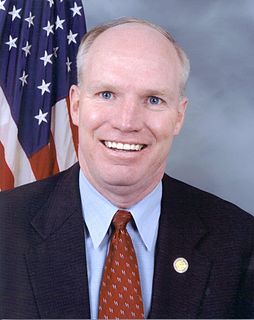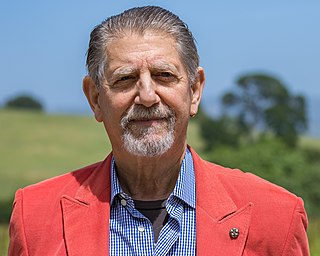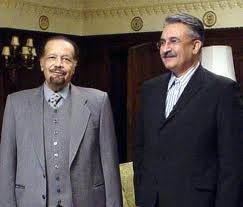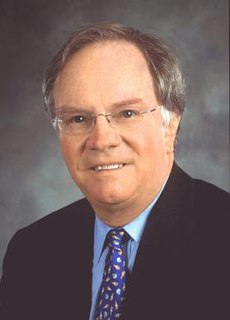Top 1200 Oil Consumption Quotes & Sayings
Explore popular Oil Consumption quotes.
Last updated on October 7, 2024.
There's a huge misconception that it's all about the oil, and the truth is there's actually not much oil left in Abyei. The misperception arose because when the peace agreement was signed in 2005, Abyei accounted for a quarter of Sudan's oil production. Since then, the Permanent Court of Arbitration in The Hague defined major oil fields to lie outside Abyei. They're in the north now, not even up for grabs, and they account for one percent of the oil in Sudan. The idea that it's "oil-rich Abyei" is out of date.
The illusion that consumption - and its correlative, income - is desirable probably stems from too great preoccupation with what Knight calls "one-use goods," such as food and fuel, where the utilization and consumption of the good are tightly bound together in a single act or event. ... any economy in the consumption of fuel that enables us to maintain warmth or to generate power with lessened consumption again leaves us better off. ... there is no great value in consumption itself.
If every U.S. citizen ate just one meal a week (any meal) composed of locally and organically raised meats and produce, we would reduce our country’s oil consumption by over 1.1 million barrels of oil every week. That's not gallons, but barrels. Small changes in buying habits can make big differences. Becoming a less energy-dependent nation may just need to start with a good breakfast.
I can at once refute the statement that the people of the West object to conservation of oil resources. They know that there is a limit to oil supplies and that the time will come when they and the Nation will need this oil much more than it is needed now. There are no half measures in conservation of oil.
We must surely appear to the world as exactly what we are: a nation that organizes its economy around consuming twice as much oil as it produces, and around the profligate wastefulness of the wars and campaigns required to defend such consumption. In recent years we have defined our national interest largely in terms of the oil fields and pipelines we need to procure fuel.
We passed law that encouraged consumption through different purchasing habits like, you know, hybrid vehicles. You buy hybrid, you get a tax credit. We've encouraged the spread of ethanol as an alternative to crude oil. We have asked for Congress to pass regulatory relief so we can build more refineries to increase the supply of gasoline, hopefully taking the pressure off of price. And so the strategy is to recognize that dependency upon crude oil, in a global market, affects us economically here at home. And, therefore, we need to diversify away as quickly as possible.
I've been saying for a long time, and I think you'll agree, because I said it to you once, had we taken the oil - and we should have taken the oil - ISIS would not have been able to form either, because the oil was their primary source of income. And now they have the oil all over the place, including the oil - a lot of the oil in Libya, which was another one of her disasters.
Whole ideology of consumption almost to the point of religion. Whether it's the consumption of entertainment or the consumption around buying things, we're so caught up with our appetites that we don't have a clear distinction about what we need and what we just want. Plus, the decline of trade unions is a factor. When you have powerful unions, you have a working class that is politicized.
In most of the affluent populations I have considered, the prevalence of coronary disease is associated with the consumption of sugar. Since sugar consumption is only one of a number of indices of wealth, the same sort of association (to coronary disease) exists with fat consumption, cigarette smoking, cars.
Saudi Arabian oil production is at or very near its peak sustainable volume (if it did not, in fact peak almost 25 years ago), and is likely to go into decline in the very foreseeable future. There is only a small probability that Saudi Arabia will ever deliver the quantities of petroleum that are assigned to it in all the major forecasts of world oil production and consumption.
I shall argue that it is the capital stock from which we derive satisfaction, not from the additions to it (production) or the subtractions from it (consumption): that consumption, far from being a desideratum, is a deplorable property of the capital stock which necessitates the equally deplorable activity of production: and that the objective of economic policy should not be to maximize consumption or production, but rather to minimize it, i.e. to enable us to maintain our capital stock with as little consumption or production as possible.
Developed and benefited from the unsustainable patterns of production and consumption which have produced our present dilemma. It is clear that current lifestyles and consumption patterns of the affluent middle class-involving high meat intake, consumption of large amounts of frozen and convenience foods, use of fossil fuels, appliances, home and work-place air-conditioning, and suburban housing-are not sustainable. A shift is necessary toward lifestyles less geared to environmentally damaging consumption patterns.
About 75% of the price of gas is really dictated by crude oil. At the heart of the issue is increasing demand over a period of many years around the world. World crude oil consumption now is close to 90 million barrels a day. Most of the growth in demand is coming from China and the developing world.



















































